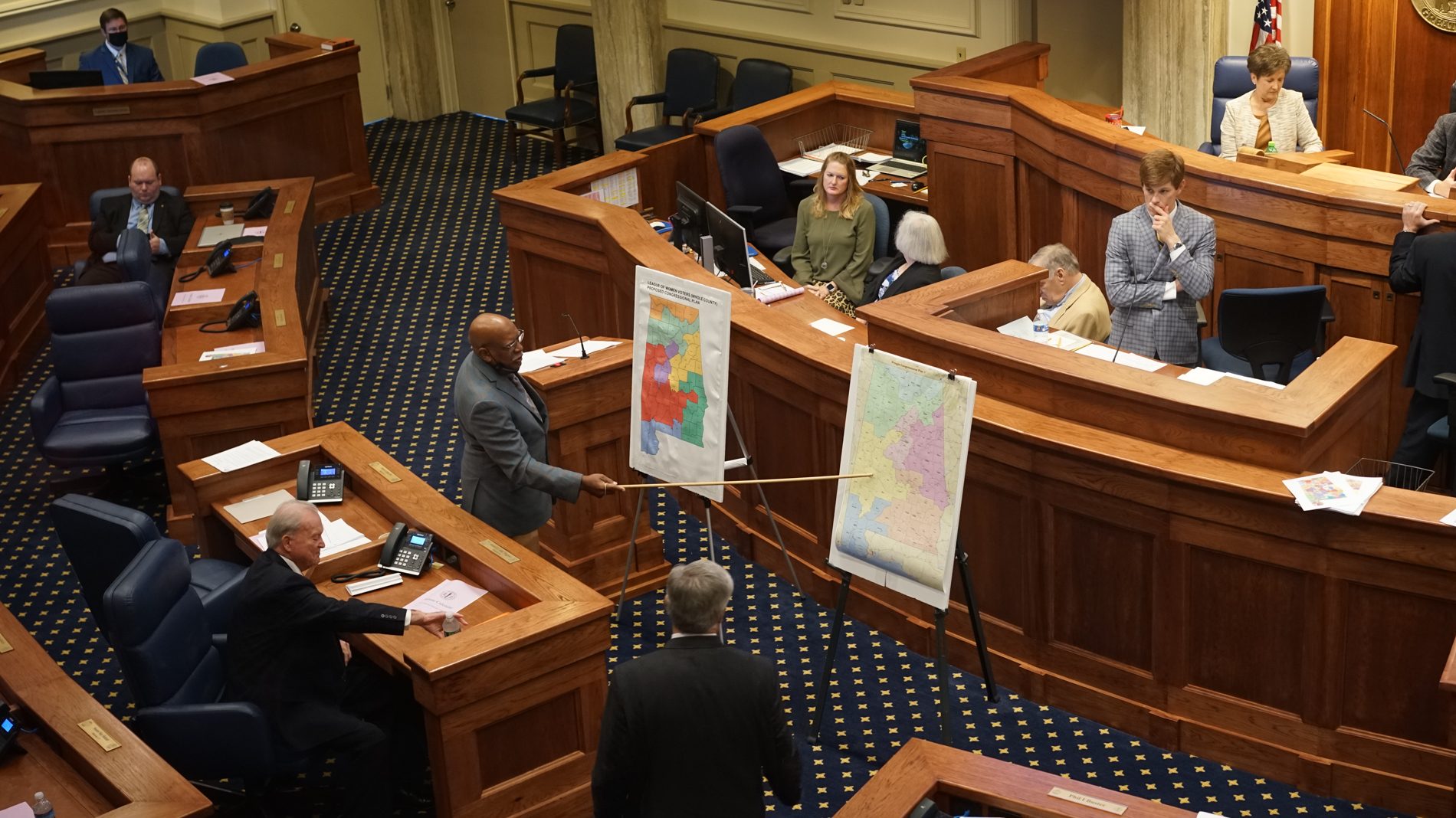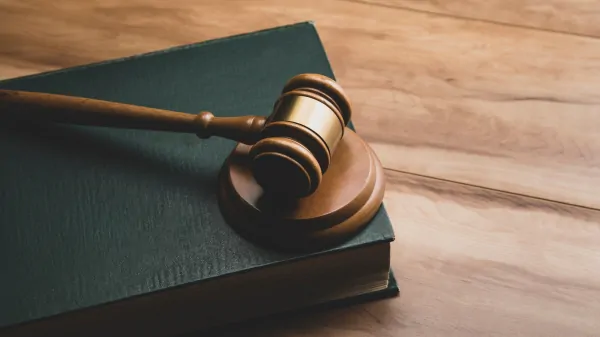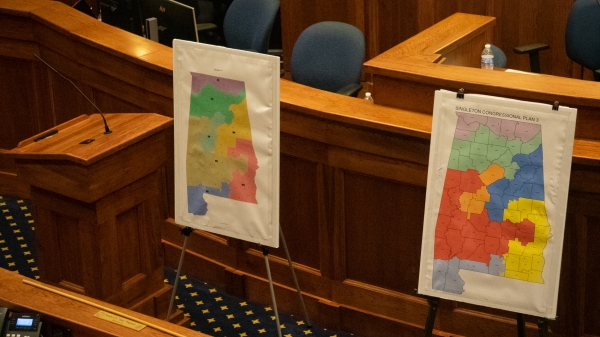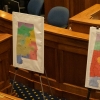|
Getting your Trinity Audio player ready...
|
The deadline for the public to submit maps passed Friday with somewhere around 80 maps sent in according to the office of the permanent legislative committee on reapportionment.
The majority of those maps will not be considered, said reapportionment supervisor Donna Loftin, because they were submitted from out of state — and in some cases, out of country.
“We got one from France, one from New Zealand, one from Washington State — they’re from all over,” Loftin said. “We’re only going to process the ones from people who actually live in Alabama”
Rep. Chris Pringle, R-Mobile, had remarked about the map sent in from France during the committee’s first public hearing on the maps, at which Pringle was elected to lead the process in the House. The second and final public hearing before the July 17 start of the special session will be held once again in Room 200 of the Statehouse at 1:30 p.m. on Thursday, July 13.
So far, only 13 maps have been uploaded to the Legislature’s webpage for the redistricting process, all of which come from within the lawsuit led by plaintiff Evan Milligan, executive director of Alabama Forward, that led to the U.S. Supreme Court overturning the state’s original map on account of racial gerrymandering.
Loftin said she is working to add the other “handful” of maps that were submitted by Alabama residents.
The map favored Milligan and his fellow plaintiffs is labeled on the site as the VRA Plaintiffs Remedial Map.
Another map is listed on the site as CLC Map 1. This appears to be a map originally included in the Milligan lawsuit in an amicus brief by the Campaign Legal Center and later presented as a remedial option at the first public hearing by attorney Jeff Blacksher, counsel for the Singleton plaintiffs who had their own suit filed against the Congressional map on the same grounds of violating Section 2 of the Voting Rights Act.
In a letter from senior redistricting officer Mark Gaber to Dorman Walker, counsel for the legislative reapportionment chairs, Gaber points out that the map was never intended to be used as a remedial plan in the case that the court ruled for the plaintiffs, but to demonstrate that even if the court accepted elements of the state’s argument, the Legislature still sidestepped other viable maps in order to dilute Black voting power.
“The illustrative plans from CLC’s amicus brief were drawn in response to arguments advanced by the State that the Supreme Court has now flatly rejected,” Gaber said in the letter. “While the Legislature has flexibility in drawing a remedial plan, this Committee should engage a qualified expert to analyze any potential remedial districts against a robust set of past election data to ensure the remedial districts will indeed function to provide Black voters the rights Section 2 of the VRA guarantees them.”
Plaintiffs in the Singleton suit include Sen. Bobby Singleton, D-Greensboro, and Sen. Rodger Smitherman, D-Birmingham.
Smitherman told APR he will be filing the “Singleton 3” map included in the Singleton plaintiffs’ lawsuit against the state, but also supports the CLC map as a remedial plan, which he said Singleton will be filing. Singleton did not respond to APR’s request for comment for this article.
“That map, what it does is it takes into account whole counties and it connects the Black Belt all together into one Congressional district,” Smitherman said. “In that map, the opportunity district is going to be Jefferson County. It includes just a little smidgeon of Shelby County to have the necessary numbers.
“The key element in those plans are it keeps all our counties whole—our Constitution speaks of the effort to keep our counties whole— it minimizes to a very minute point any kind of gerrymandering to accomplish those ends, and it keeps Jefferson County whole. Those are three of those reasons why I’m supporting those maps.”
Smitherman’s points both for the CLC map and against the Milligan plaintiffs’ maps echoed the comments by Blacksher at the public hearing. Smitherman expressed concern that the Milligan map could be viewed as unconstitutional gerrymandering by the court.
“Some people think that the ruling flows over into the remedy,” Smitherman said. “When they court looks at the remedy, they’re going to use strict scrutiny and they’re going to have problems with the gerrymandering (in the Milligan plan).”
Gaber in the leaked CLC letter disputed the idea that the Milligan remedy is unconstitutional.
“Any suggestion that it would be an unconstitutional racial gerrymander if the Legislature were to adopt two majority BVAP districts—such as the districts proposed by the VRA Plaintiffs—is unfounded,” Gaber said. “To begin, the district court already rejected the contention that Plaintiffs’ demonstrative districts were racial gerrymanders. This alone answers the question. Moreover, it is apparent on the face of the VRA Plaintiffs’ proposed map that traditional districting criteria, not race, are the predominant motivation.”
Singleton and Smitherman also represent Jefferson County, which is kept whole in both maps they will be presenting. The Milligan remedy however splits up Jefferson County similar to the map originally approved by the state legislature.


















































